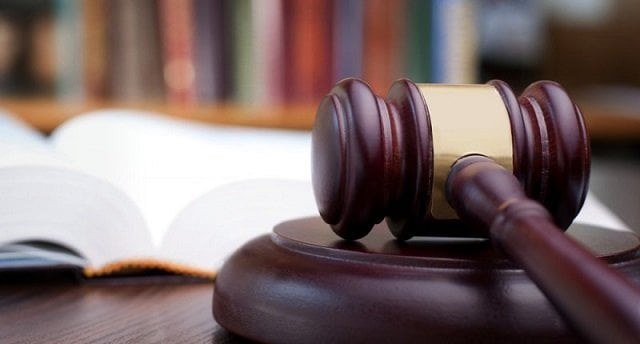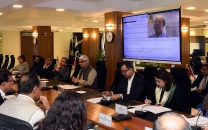High courts can’t take suo motu notice, says SC
Declares a writ petition against Pakistan Olympic Association as non-maintainable

Representational image. PHOTO: REUTERS
Issuing an order on Tuesday against a six-year old Lahore High Court verdict, a three-judge bench headed by Chief Justice of Pakistan Mian Saqib Nisar said internal functions of the association cannot, in the facts and circumstances, be subjected to judicial review under Article 199 of the Constitution.
“Therefore, it is held that the decision of the learned high court in holding a writ to be maintainable against the association was erroneous and cannot be sustained,” said the verdict.
The respondent had filed a writ petition in the Lahore High Court (LHC) against the February 2012 election of the POA. The LHC had accepted the petition and declared the election illegal.
The POA had challenged this judgment in the Supreme Court and requested it to consider maintainability of the writ petition against the association in terms of Article 199 of the Constitution.
The verdict authored by the CJP said a high court is authorised to issue any directives, as may be appropriate for the enforcement of any of the fundamental rights conferred by the Constitution, provided two conditions are met. “(i) Such direction is made pursuant to an application of any aggrieved person, in other words, the high court cannot do so suo motu; and (b) no other adequate remedy is provided by law.”
It said a writ is maintainable under Article 199(1)(c) of the Constitution against any person, including the body politic or corporate, for the purpose of enforcement of any of the fundamental rights conferred by the Constitution Article 199(1)(c) is wider than the other parts of the Article and is not restricted to public functionaries only but can extend to private parties, as long as there is a question of enforcement of fundamental rights.
“The federal government does provide funding to defray the costs of sending contingents to the Olympics; however, the private activities and other management of the organisation are funded by the association itself. The overall activities of the organisation are independent and the bulk of the activities carried out are privately funded.
“A single activity/undertaking is funded by the federal government and while it is an expensive undertaking, it is only part of what the association does. Most importantly, no financial interest of the State lies in the functions of the association,” it said.
The court said the association does not satisfy the function test laid down by it and is not exercising public functions and is not a ‘person’ as per Article 199(5). No writ of quo warranto can therefore lie against its officeholders, nor can a writ lie against the association in terms of Article 199(1)(a).
It said the only affiliation that the association has acquired is that of private bodies such as the IOC which according to the Olympic Charter does not require that the affiliating body be a public body.
“Therefore, it is held that the finding of the learned high court in this regard was incorrect; the association is not a person exercising functions in connection with the affairs of the federation in terms of Article 199(1)(a)(i) and (ii) of the Constitution.
“In the instant case, the fundamental rights being relied on by the counsel in making such argument are Articles 9, 14, 17, 18, and 25 of the Constitution, all of which do not seem relevant in the instant matter,” it added.



















COMMENTS
Comments are moderated and generally will be posted if they are on-topic and not abusive.
For more information, please see our Comments FAQ